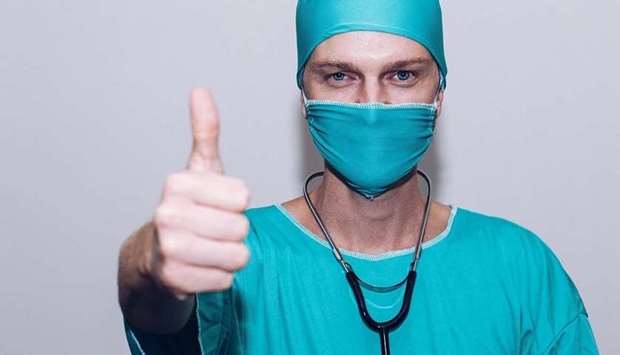Staff in England’s National Health Service (NHS), who have been on the frontlines of the battle against the coronavirus pandemic, will receive a 3% pay rise, the British government said yesterday.
The pay rise for staff including nurses, paramedics, consultants, dentists and salaried general practitioners (GPs) will be backdated to April 2021.
It was immediately criticised by unions, who called it insulting.
The government had initially offered a 1% pay rise, drawing an angry response from staff, unions and the general public who said it was scant reward for their work during the pandemic, which is still raging in the United Kingdom.
“NHS staff are rightly receiving a pay rise this year despite the wider public sector pay pause, in recognition of their extraordinary efforts,” the health minister, Sajid Javid, said.
The government made an improved offer after it accepted the recommendations of independent pay review bodies.
For the average nurse, the rise will mean an additional £1,000 ($1,372) a year, while many porters and cleaners will receive around £540 more, the government said.
However, nurses’ union the Royal College of Nursing said that the rise amounted to a pay cut when inflation is taken into account.
“When the Treasury expects inflation to be 3.7%, ministers are knowingly cutting pay for an experienced nurse by over £200 in real-terms,” said the union’s general secretary and chief executive Pat Cullen.
She said members will be consulted on what action they would take next.
The GMB union, which represents health workers, including ambulance workers, called the rise “paltry” and “insulting”.
The rise for NHS staff in England falls short of the 4% increase backdated to December 2020 given by the Scottish government to NHS Scotland staff.
Health spending and public sector pay is a responsibility of the devolved nations in the United Kingdom – Scotland, Wales and Northern Ireland.
The government dropped plans to make only 1.5% of the 3% uplift a permanent increase to salaries, with the other 1.5% in effect a one-off bonus, after staff groups warned privately that structuring the deal that way would lead them to condemn the deal.
However, the government’s decision to exclude the NHS’s 61,000 junior doctors – all medics below the level of consultant – from the award is certain to cause deep unease among a key group of staff who undertook a series of strikes in 2015-16 in protest at a proposed new contract.

(Representative photo) (Photo: pixabay.com)
